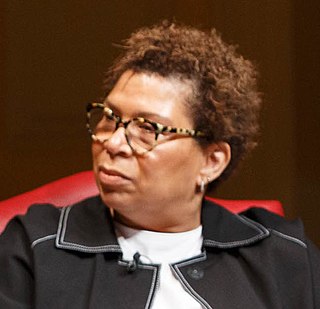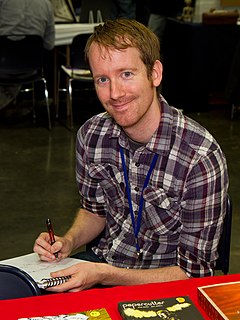A Quote by Ashley Graham
The sum total of what I learned about African American culture in school was Martin Luther King Jr., Rosa Parks, and the Underground Railroad. This was more than my mom knew; she didn't even see a black person in real life until she was 18 years old.
Quote Topics
About
African
African American
African American Culture
American
American Culture
Black
Black Person
Culture
Even
King
Knew
Learned
Life
Luther
Martin
Martin Luther King
Martin Luther King Jr
Mom
More
My Mom
Old
Parks
Person
Railroad
Real
Real Life
Rosa
School
See
She
Sum
Sum Total
Than
Total
Underground
Underground Railroad
Until
Years
Related Quotes
I heard of Martin Luther King Jr. when I was 15 years old. I heard of Rosa Parks. And I met Dr. King in 1958 at the age of 18. I met Rosa Parks ... But to pick up a fun comic book - some people used to call them "funny books" - to pick this little book up, it sold for 10 cents, 12 pages or 14 pages? 14 pages I digested. And it inspired me. And I said to myself, "If the people of Montgomery can do this, maybe I can do something. Maybe I can make a contribution."
When I was 15 years old in the tenth grade, I heard Martin Luther King, Jr. Three years later, when I was 18, I met Dr. King and we became friends. Two years after that I became very involved in the civil rights movement. I was in college at the time. As I got more and more involved, I saw politics as a means of bringing about change
When I was 15 years old and in the tenth grade, I heard of Martin Luther King, Jr. Three years later, when I was 18, I met Dr. King and we became friends. Two years after that I became very involved in the civil rights movement. I was in college at that time. As I got more and more involved, I saw politics as a means of bringing about change.
One of our priorities when doing "March" is to sort of undo what we feel is the disservice done by what we call the Nine Words Problem. Which is that most American kids, whatever they do learn about the movement, especially in school, is usually limited to Rosa Parks, Martin Luther King, "I Have a Dream." And so there's sort of a layer of unreality; there's not a sense of continuity.
Most Americans who made it past the fourth grade have a pretty good idea who Thurgood Marshall, Rosa Parks, and Martin Luther King, Jr., were. Not many Americans have even heard of Alice Paul, Howard W. Smith, and Martha Griffiths. But they played almost as big a role in the history of women’s rights as Marshall and King played in the history of civil rights for African-Americans. They gave women the handle to the door to economic opportunity, and nearly all the gains women have made in that sphere since the nineteen-sixties were made because of what they did.
I remember back in the 1960s - late '50s, really - reading a comic book called 'Martin Luther King Jr. and the Montgomery Story.' Fourteen pages. It sold for 10 cents. And this little book inspired me to attend non-violence workshops, to study about Gandhi, about Thoreau, to study Martin Luther King, Jr., to study civil disobedience.





































